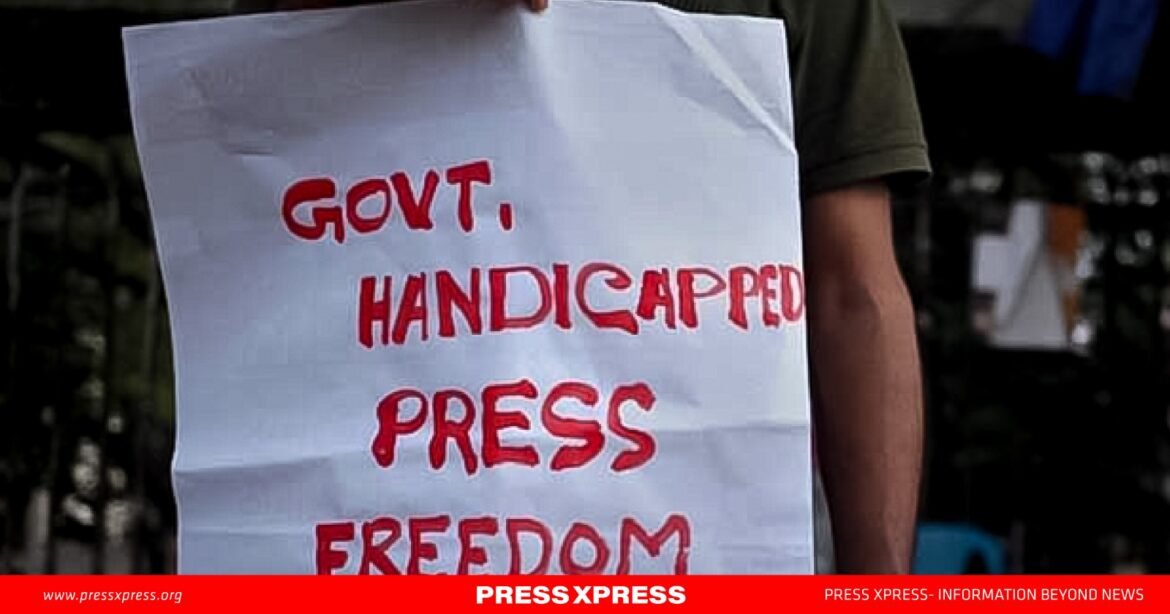Bangladesh has been identified as one of the most dangerous countries for journalists, according to a new report by Reporters Without Borders (RSF). The report, titled RSF Round-Up 2024, highlights targeted violence against media professionals, particularly during political unrest.
The findings reveal a troubling global trend, with record-high fatalities among journalists in conflict zones. Bangladesh witnessed five journalist deaths this year, primarily linked to protests. Pakistan, meanwhile, recorded seven fatalities.

The report states that worldwide, journalists face “unprecedented levels of risk,” with conflict zones accounting for a significant share of fatalities. The Gaza Strip alone accounted for nearly 30% of journalist deaths in 2024, making Palestine the deadliest region for media workers over the past five years.
RSF also named Bangladesh’s security forces as a key threat to press freedom, alongside Israel’s armed forces, which have been implicated in the deaths of over 155 journalists since October 2023.
Bangladesh’s Press Under Pressure
Press freedom in Bangladesh has faced increasing challenges in 2024. The fall of Sheikh Hasina’s government in August and the installation of an interim government led by Nobel laureate Mohammad Yunus have coincided with a wave of crackdowns on journalists.
Over 300 journalists have been charged with offenses, including murder. Critics say many of these charges are fabricated. Among the most notable cases is the arrest of journalist couple Farzana Rupa and Shakil Ahmed, who were detained at Dhaka airport in August while attempting to travel to France. Despite no evidence against them, they remain in prison.
In addition to arrests, journalists face travel bans, frozen bank accounts, and revoked press credentials. Women journalists, in particular, have reported harassment and attacks while covering protests.
Media outlets perceived as critical of the government have also come under pressure. Demonstrators targeted liberal newspapers such as Prothom Alo and The Daily Star, with protesters slaughtering a cow outside Prothom Alo’s offices earlier this year, accusing the paper of being “pro-India.”
A Declining Global Ranking
Bangladesh’s press freedom ranking in the RSF World Press Freedom Index currently stands at 165 out of 180. This ranking is expected to drop further. Observers have attributed the deteriorating situation to the influence of hardline groups within the interim government.
Charlotte Jacquemart, a senior editor with Swiss Public Radio, described the situation as a “systematic dismantling” of secular and democratic principles. “The Islamic movements, long waiting in the wings, have seized the moment since the August 5 coup,” she said.
The ongoing crackdown has extended beyond the media. Public spaces for women have shrunk as reports of harassment increase. Jacquemart noted that women and girls have “largely disappeared” from Dhaka’s streets and are facing growing restrictions on dress and education.
The crackdown has also strained the unity that briefly emerged among Bangladesh’s military, police, and civil society to overthrow Sheikh Hasina’s government. Experts warn of the potential for civil unrest or worse.
International organizations, including RSF and the Committee to Protect Journalists, have called for the immediate release of detained journalists and an end to the crackdown on press freedom. However, global responses have been limited.
While Mohammad Yunus has acknowledged some unfairness in the charges against journalists, his government has yet to take significant steps to address the crisis.
The suppression of press freedom in Bangladesh is being closely monitored by international observers. Advocacy groups have warned that the erosion of press freedoms is a serious threat to the country’s democracy and broader human rights.


